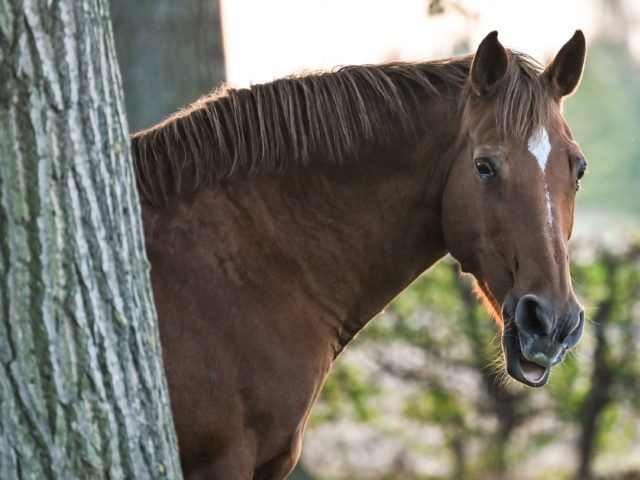As fuel prices spiral in the face of the ongoing Russian invasion of Ukraine, one French commuter has opted to say neigh to paying $12.50-a-gallon in favour of coming to work on horseback.
Facing galloping fuel prices thanks in part to the ongoing war in Ukraine, one French commuter has opted to abandon his car in favour of a more old-fashioned method of travel: horseback.
Louis Geneix, a waiter working in the small town of Yssingeaux, is now travelling to work on his 7-year-old mare, Eole, in the hopes of keeping more of his hard-earned Euros in his pocket, reports Spiegel.
According to a report by Haute-Loire regional news site La Commère 43, Geneix made the switch in response to the major increase in the price of diesel.
“In December, diesel cost me €80 per month,” the waiter explained. “Since the increase, it’s between €160 and €200 for my little diesel ‘Clio’ [a popular type of compact car].”
“It’s just no longer possible to pay almost €3 a litre [$12.50 a gallon],” he also said. “[It] is not livable with a minimum wage. It’s not possible to get by.”
‘Global Food Crisis’ Ukraine War Will Have ‘Catastrophic’ Effect on Global Food Supply – Agri Org https://t.co/UcIXowiQVA
— Breitbart London (@BreitbartLondon) March 8, 2022
While the commute to his workplace is longer on horseback than it is by car, Geneix reportedly sees it as manageable, and though the equine transport method will not be able to replace his car fully, he does plan on employing the services of Eole further in his quest for a cheaper route to work.
However, while the French waiter currently finds horseback a cheaper mode of transport than his diesel car, ‘fuel’ for horses is likely to rise in price too, as the ongoing crisis in Ukraine constrains the supply of grain and animal feed.
According to one of Europe’s chief Agri-Food officials, Michael Scannell, the EU is heavily reliant on Russia and Ukraine for numerous supplies required to look after a farm animals, such as grain and animal feed, with Russia’s ongoing invasion likely to result in serious food security issues for the union.
Another expert has warned that a “global food crisis” is now almost certain, with the ongoing conflict in Eastern Europe likely to have “catastrophic” consequences on the world’s supply of food.
“For me, it’s not whether we are moving into a global food crisis – it’s how large the crisis will be,” explained Svein Tore Holsether of agri company Yara International.
Holsether also noted the role Russia has in the supply of fertiliser, an essential component in world farming.
“Half the world’s population gets food as a result of fertilisers… and if that’s removed from the field for some crops, [the yield] will drop by 50%,” he also noted.
For now, though, Geneix appears to be content with hoofing it to work, with the waiter saying he would like to make the journey by horseback at least once a week.

COMMENTS
Please let us know if you're having issues with commenting.